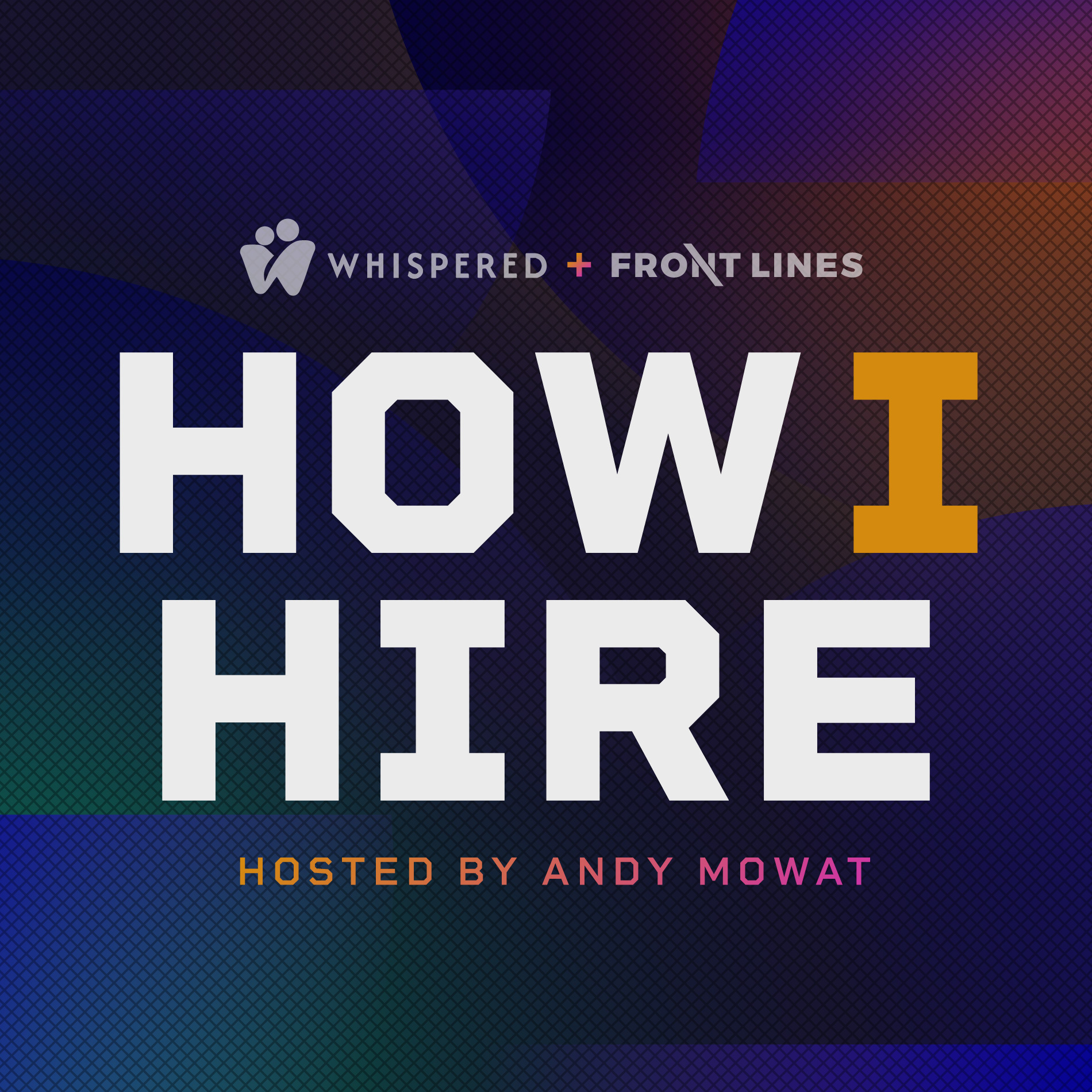How I Hire
Podcast Description
How I Hire Podcast: Unfiltered conversations with senior GTM leaders revealing their actual strategies for finding, vetting, and attracting exceptional talent. Hosted by Andy Mowat, who’s scaled four unicorns from $10M to $100M+ ARR, each episode uncovers the unwritten playbook for executive hiring that drives exponential growth.
Podcast Insights
Content Themes
The podcast covers a range of topics related to executive hiring strategies such as talent gap assessment, hiring frameworks, and onboarding practices. For example, one episode discusses how LiveRamp's 'hungry, humble, smart' approach helps in identifying candidates with critical soft skills, while another episode highlights the effectiveness of a 'people first' onboarding strategy that fosters relationship building. Additionally, it explores the market dynamics of hiring, including the impact of candidate rejections and the evolving job market needs.

Whispered Hiring – the podcast where we talk with senior GTM leaders about how they find, vet, attract and grow new talent. Hosted by the team at Whispered, each episode uncovers the unwritten playbook for executive hiring that drives exponential growth.
Building a 57,000+ LinkedIn following eliminated Kristi Faltorusso‘s recruiter dependency. One post now generates hundreds of qualified CS applicants while her network delivers pre-vetted referrals through direct outreach. But the deeper insight is how she completely rewired her hiring methodology after repeatedly failing to replicate playbooks across companies. Customer success roles are never portable. What worked at Series A fails at Series C. Leaders who scaled at Salesforce often can’t operate in startups. She now evaluates candidates against 24-36 month company trajectories, filtering for grittiness before considering experience or quota achievement.
Her interview process rejects stage gates and prescribed frameworks. She asks candidates to recall times they were “in over their head” and requests “a failure you’re really proud of,” separating those who own mistakes from those who point fingers. Before any offer, she dedicates a full session where candidates ask her anything. Their questions expose business acumen, reveal what broke at previous companies, and eliminate the assumption gaps that derail new hires within weeks. Post-hire, she meets daily with direct reports for the first 14 days, not for status updates, but to build trust and surface friction before it calcifies.
Topics discussed:
- Building a 57,000-follower LinkedIn presence that replaced external recruiters through one-post sourcing and network referrals
- Why customer success playbooks and hiring profiles can’t transfer between Series A and Series C stage companies
- Using marathon completions and multi-year personal commitments to assess grittiness independent of professional achievements
- The “tell me about a time you were in over your head” question that reveals self-awareness and problem-solving under ambiguity
- How “what’s a failure you’re really proud of” separates candidates who own outcomes from those who deflect responsibility
- Allocating a full interview session for candidate questions to surface concerns and eliminate misaligned expectations before offers
- Meeting daily with new direct reports for two weeks to establish trust rather than relying on structured 30-60-90 plans
- Conducting backchannel references with unprepared cross-functional colleagues instead of candidate-selected contacts
ABOUT YOUR HOST:
Andy Mowat has built GTM engines for top companies throughout his career. He led Revenue Operations and Demand Gen at four unicorns, including scaling from $10M to $100M ARR at both Upwork and Culture Amp, and helping guide Box and Carta through IPO scale. With a passion for connecting people, Andy has advised executives on their careers for years and launched Whispered to make searching for executive roles less intimidating.
Learn more about about Whispered: www.whispered.com
Interact with AI Andy: www.whispered.com/whisper-search

Disclaimer
This podcast’s information is provided for general reference and was obtained from publicly accessible sources. The Podcast Collaborative neither produces nor verifies the content, accuracy, or suitability of this podcast. Views and opinions belong solely to the podcast creators and guests.
For a complete disclaimer, please see our Full Disclaimer on the archive page. The Podcast Collaborative bears no responsibility for the podcast’s themes, language, or overall content. Listener discretion is advised. Read our Terms of Use and Privacy Policy for more details.
